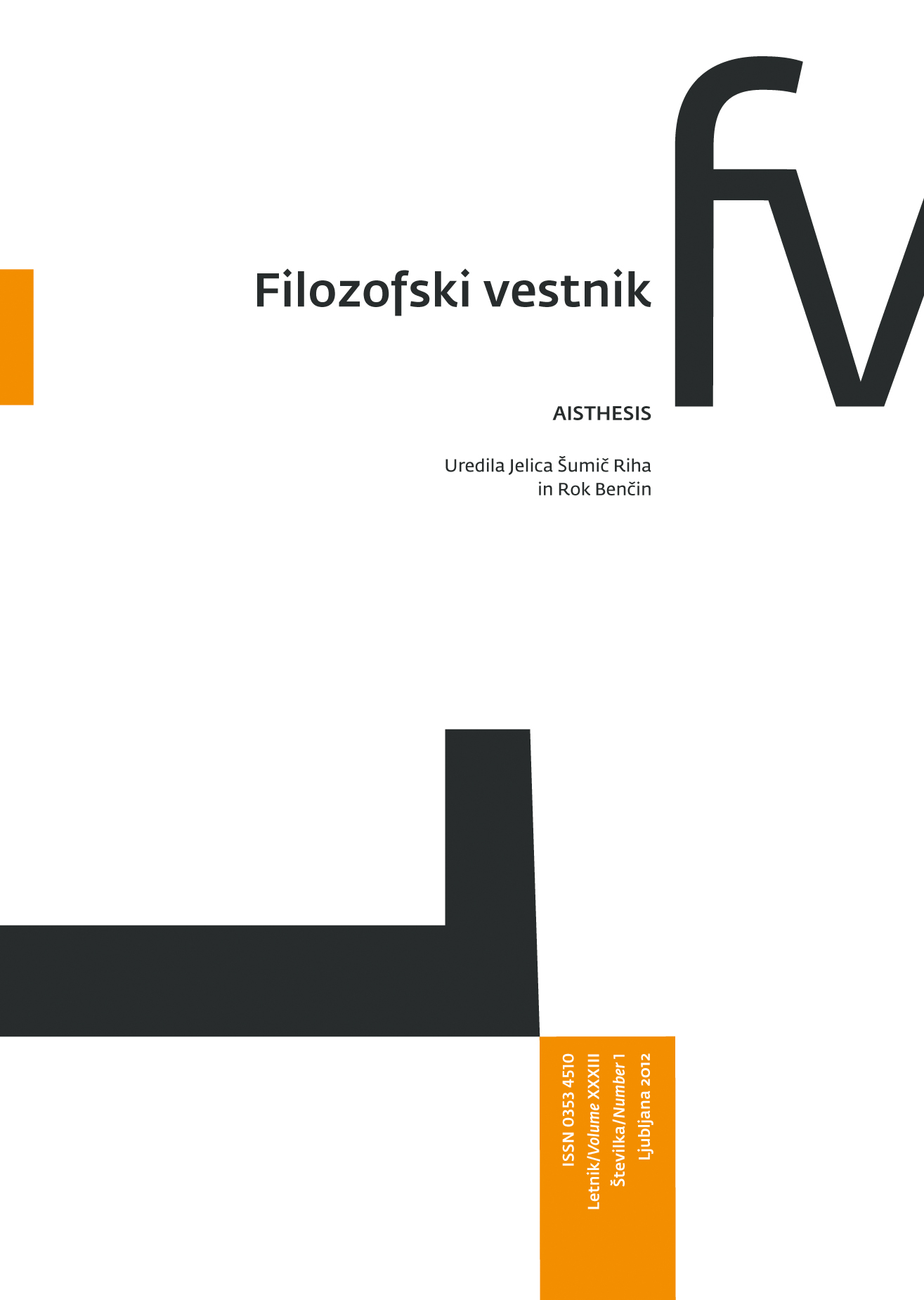Iz gozda na plan: kartezijanstvo za 21. stoletje (ki sledi)
Ključne besede:
Badiou, Bog, cogito, Descartes, nemisljivo, nemožno, praznina, subjektPovzetek
Badioujevo filozofijo se pogosto razume kot prizadevanje po osnutju nove filozofije – po (postmoderni, dekonstruktivistični) kritiki subjekta, sistematičnega mišljenja, kategorije resnice itd. A doslej se ni še nihče lotil podviga sistematične navezave njegove filozofije na »radikalno nov začetek filozofije« (Husserl), ki ga zaznamujejo dela »deda revolucije« (Nietzsche), Renéja Descartesa. Članek gre po sledi kartezijanskih elementov v Badioujevi misli, pri čemer pokaže, da sta oba najbolj razvpita dokaza, ki ju poda Descartes (zloglasni dokaz cogita in dokaz za Božje bivanje), v Badioujevi misli (zlasti v njegovi meta-ontologiji) deležna zelo specifične in nenavadne reartikulacije. S podrobnim branjem te reartikulacije lahko opredelimo ne le Badioujev odnos do teorije subjekta, ki je tako tesno povezana z njegovim imenom, pač pa tudi njegovo stališče do – nemara – presenetljive kategorije nemisljivega. Članek z razvitjem te povezave med Descartesom in Badioujem pokaže, da se je z njenim upoštevanjem mogoče izogniti večini napačnih branj Badioujevih ontoloških trditev (denimo trditve, da je bit mnoštvo) in da lahko nov začetek, za katerega si prizadeva Badiou, razumemo kot ponovno oživitev kartezijanstva v novem stoletje (ki sledi).Prenosi
Podatki o prenosih še niso na voljo.
Prenosi
Objavljeno
2016-02-06
Kako citirati
Ruda, F. (2016). Iz gozda na plan: kartezijanstvo za 21. stoletje (ki sledi). Filozofski Vestnik, 33(1). Pridobljeno od https://ojs.zrc-sazu.si/filozofski-vestnik/article/view/4187
Številka
Rubrike
Aisthesis
Licenca
Avtorji jamčijo, da je delo njihova avtorska stvaritev, da v njem niso kršene avtorske pravice tretjih oseb ali kake druge pravice. V primeru zahtevkov tretjih oseb se avtorji zavezujejo, da bodo varovali interese založnika ter da bodo povrnili morebitno škodo.
Podrobneje v rubriki: Prispevki





